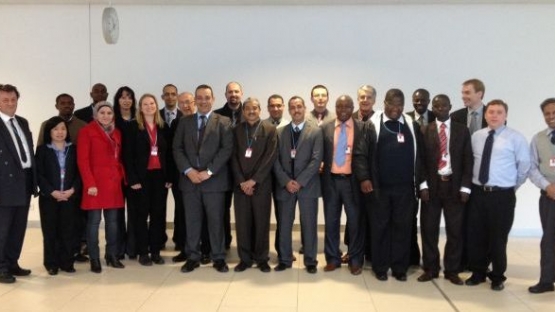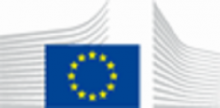Like nuclear power reactors, the safety of research reactors requires careful attention. Although research reactors are not covered by the Convention on Nuclear Safety, their safety is addressed by the IAEA's Code of Conduct on the Safety of Research Reactors. The Code requires comprehensive and systematic independent regulatory supervision throughout the lifetime of a research reactor. However, regulatory supervision of research reactors is inadequate in many countries in Africa.
To strengthen regional capabilities in regulatory supervision of research reactors in Africa, the IAEA, in collaboration with the European Commission (EC), has hosted a first workshop on 'Regulatory Supervision of Research Reactors' at the IAEA's headquarters from 29 October to 2 November 2012. The workshop aimed to provide the participating countries with practical information to improve their regulatory surveillance of research reactors. It was organized under the auspices of an IAEA technical cooperation (TC) project to enhance the utilization and safety of research reactors in Africa, and was supported by funds contributed by the EC to IAEA technical cooperation activities under the EC/IAEA nuclear safety agreement. The EC actively supports the strengthening of the oversight capabilities of African regulatory bodies through the IAEA's technical cooperation programme, as part of their overarching goal to ensure nuclear safety around the world.
The workshop discussed the effective application of the Code of Conduct on the Safety of Research Reactors in African Member States. In particular, the workshop focused on establishing effective regulatory inspection programmes and performing reviews and assessments of the operating organizations' safety submittals.
Eleven participants from eight Member States in Africa attended the workshop. In addition, 20 participants from 19 Member States from other regions took part in the workshop.
During the event, participants received essential information on regulatory oversight and were given practical examples of effective interventions by a regulatory body during normal operation and in accident circumstances. The workshop also served as a forum for the discussion of national practices, and participants were able to exchange their experiences in the topics covered, including the implications of the Fukushima-Daiichi accident on regulatory body activities concerning research reactors. By the end of the workshop, the participants had identified good practices and areas needing improvement in their countries with regard to regulatory supervision, licensing, licence compliance and enforcement.



